The message from the US presidential campaign
- Published
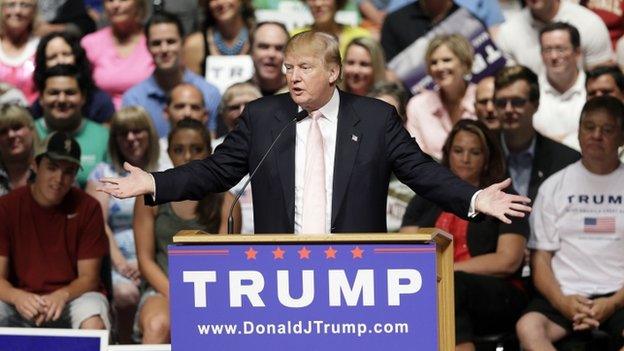
Donald Trump has led recent Republican polls
American presidential politics do not pause for summer. They are in full roll: an incessant drumbeat of speeches, bites and clips all scrabbling for attention.
For the Republicans, there is an all-important August debate. And for all the candidates, Iowa and its caucuses lie just over the near horizon.
Fresh from European and British politics, it is always interesting to gauge the message from America. What do its potential leaders believe is the zeitgeist?
The media is consumed by the harlequinade of Donald Trump, who inhabits a political rough-house where insults are freely traded. Mexican immigrants are decried as rapists and drug dealers, and he is happy to scrap with John McCain and his record as a prisoner of war.
There is no big idea. Mr Trump has suggested building a fence or part of a fence along the Mexican border. His narrative is his own success story. His pitch amounts to: "Back me because I made oodles of money, and that qualifies me to make America great again."
For the moment, entertainment politics is sucking all the energy from the Republican campaign - with other candidates unsure whether to join in and trade punches or to wait for the Trump flame to burn out.
Media organisations debate the time they give to the former reality TV star, but most - including British networks - cannot resist the arc of the story, the belief that at some stage he will crash. He may, but he may also return to haunt the eventual Republican candidate as an independent.
Minimum-wage debate
Hillary Clinton's campaign, although swirling in controversy (the normal for the Clintons), claims to have found a big theme.
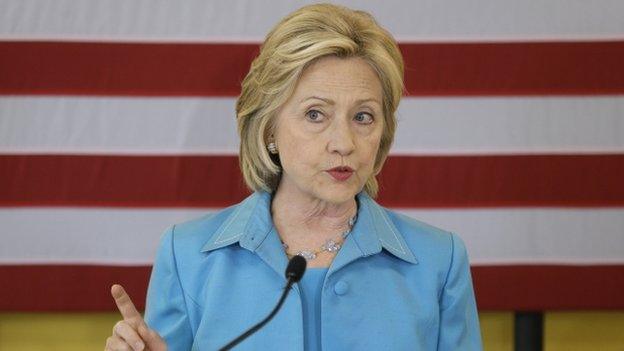
Hillary Clinton has focused on wages
The Democratic candidate says: "The defining economic challenge of our time is clear: we must raise incomes for hardworking Americans so they can afford a middle-class life. We must drive steady income growth that lifts up families and lifts up our country.''
Her recent big economic speech was peppered with references to wages. Elsewhere in America, the fight has been joined for a $15 (£10) minimum hourly wage in New York City and California for fast-food workers.
The debate on raising the minimum wage is not a settled one. It can raise incomes for lower-wage workers, but it can cost jobs too.
This central theme is not just about economics, however, it is about politics. The basic truth of the past two decades is that incomes have stagnated for millions of Americans. Trickle-down is not working. When the tide of economic growth rises, it is not lifting up all with it.
The gap between the elite caste of chief executives, financiers and lawyers and the middle class has only widened. Since 1980, inequality has increased.
If the middle class feels squeezed, then the dream is not working and that is why politicians are making it a central economic issue of the 2016 campaign. For stagnant wages and rising inequality can put the American dream beyond reach.
The Republican candidate with the family name is Jeb Bush, and he, too, echoes this theme when he says families "haven't gotten a raise in 15 years".
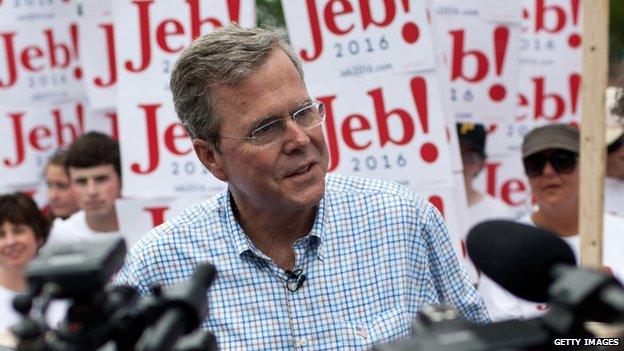
Jeb Bush has also addressed income inequality

American presidential candidates' slogans
Jeb Bush (R): All in for Jeb
Hillary Clinton (D): Everyday Americans need a champion. I want to be that champion (Unofficial)
Rand Paul (R): Defeat the Washington machine. Unleash the American dream.
Marco Rubio (R): A new American century
Bernie Sanders (D): Ready to start a political revolution?
Donald Trump (R): Make America great again!
Scott Walker (R): Let's get to work

Suddenly the idea of a living wage is good politics. Recently, the Swedish furniture manufacturer Ikea said it would increase its average minimum hourly wage to $11.87, external, that is more than $4 above the current federal wage.
In the UK, the company says it will pay its workers above the National Living Wage of £7.20 an hour announced in the Budget. The chancellor of the exchequer says the National Living Wage will rise to £9 an hour by 2020.
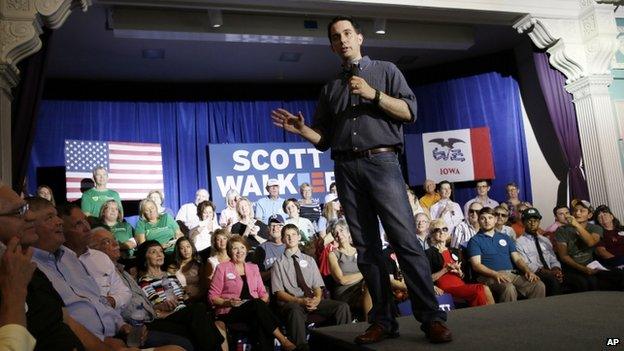
Elections in the US are also about character and style
In the UK, the political motive is to weaken the dependence of low-paid workers on benefits. At the last election, inequality and low wages were very much on the agenda, but changes have to be credible without risking economic competence.
An American election is always about much more than ideas. It is about character, style, money-raising, building a core of supporters.
All successful candidates have to have their vision of the dream: that if people work hard, they reap rewards - that goes to the heart of the American identity. Bush, Clinton and some of the other candidates understand that the dream needs repairing.
There are other themes:
the nuclear deal with Iran
the battle against the so-called Islamic State
Russian revanchism
They also play to questions about American identity - does the country walk tall in the world, is its word respected?
So in these early, roiling rounds of presidential politics, there is a central theme - is the promise inherent in the idea of the American dream still valid or is it increasingly beyond reach?
What is interesting is that you hear echoes of this across Europe, although couched differently: the fear that a new generation will not enjoy the same standard of living as those who went before.
- Published16 March 2016
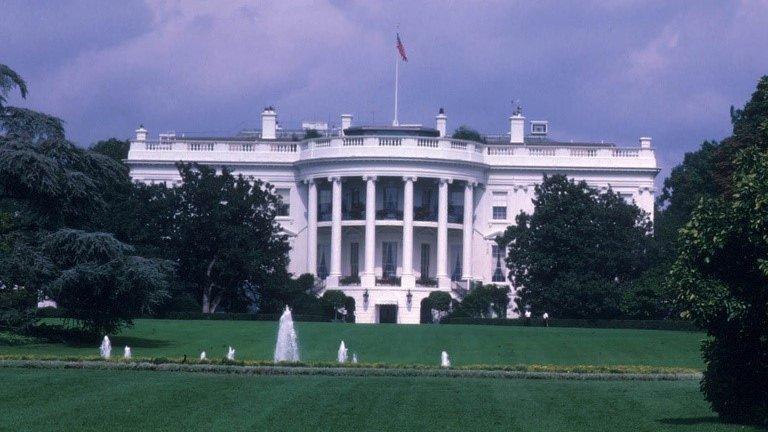
- Published21 July 2015
- Published27 July 2015